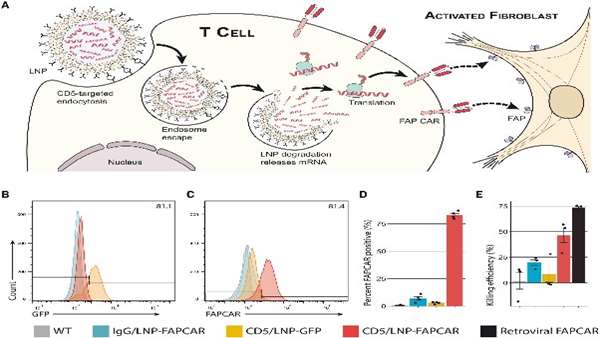Cardiac fibrosis is the stiffening and scarring of heart tissue and can be fatal. Ruriket al. designed an immunotherapy strategy to generate transient chimeric antigen receptor (CAR) T cells that can recognize the fibrotic cells in the heart.
By injecting CD5-targeted lipid nanoparticles containing the messenger RNA (mRNA) instructions needed to reprogram T lymphocytes, the researchers were able to generate therapeutic CAR T cells entirely inside the body. Efficient delivery of modified mRNA encoding the CAR to T lymphocytes was observed, which produced transient, effective CAR T cells in vivo. Antifibrotic CAR T cells exhibited trogocytosis and retained the target antigen as they accumulated in the spleen. Analysis of a mouse model of heart disease revealed that the approach was successful in reducing fibrosis and restoring cardiac function. The ability to produce CAR T cells in vivo using modified mRNA may hold promise as a therapeutic platform to treat various diseases.




ارسال به دوستان